A review of Civic Ecology, Adaptation and Transformation from the Ground Up, by Marianne E. Krasny and Keith G. Tidball. 2015. ISBN: 9780262028653. MIT Press, Cambridge, MA. 328 pages.
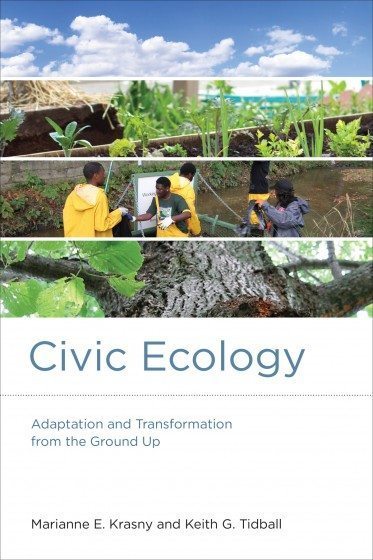 This is a book that seeks to highlight the heroic efforts of individuals to make a difference in the quality of life of their neighborhoods and to advance sustainability-oriented activities. It shows the importance of dedicated leadership and extraordinary people stepping in to address environmental problems. It assumes, for the U.S., that the Tocquevillean impression of the U.S. of civic engagement is a useful compass, especially if based in a Leopoldian ethic of nature. However, the authors go beyond the U.S. to also include examples from across the world.
This is a book that seeks to highlight the heroic efforts of individuals to make a difference in the quality of life of their neighborhoods and to advance sustainability-oriented activities. It shows the importance of dedicated leadership and extraordinary people stepping in to address environmental problems. It assumes, for the U.S., that the Tocquevillean impression of the U.S. of civic engagement is a useful compass, especially if based in a Leopoldian ethic of nature. However, the authors go beyond the U.S. to also include examples from across the world.
Civic ecology, for these authors, focuses on hands-on stewardship practices that integrate civic and environmental values (from the introduction). They argue for the importance of people acting as stewards within a social-ecological systems framework, putting the human and nonhuman pieces back together. Their emphasis is on volunteers who perceive problems and who set about trying to repair the damage — both to the people and the environment. Not entirely naïve, the authors acknowledge that civic ecology fills gaps left by the state, that it can be problematic that unpaid volunteers end up working to address the voids, and that these activities can accelerate neighborhood gentrification. Still, Krasny and Tidball wish to celebrate and honor people who defy harsh realities of poor and blighted cities, and who do so out of a sense of civic commitment to fellow residents and the planet.
The book has 10 chapters that showcase people’s work across the globe. I found the organization of the chapters and themes a bit confusing because they alternated between thematic chapters (Stewardship, Health, and Well-Being), which provided a discussion of the topic, examples from different places, and then a specific Steward Story of an individual. I could not tell how the examples were chosen among the many initiatives globally. Were these the most representative? The most transformative? Still, the point of the book is that people care and are committed to doing things to make their communities better, often on a shoestring or volunteer basis.
The book does not provide insight into the scalability of these initiatives and efforts, nor their relative impact. Herein lies the deeper set of questions. Can individual, ground-up efforts, distributed throughout cities, lead to more fundamental transformations? The authors seem to think so and point to the policy entrepreneur as a key element, a person who navigates between expert knowledge and the community, to make more substantive regulatory or institutional change. This is an optimistic message — the individuals and groups exist; they are effective. Yet those persons are rare, and the role is challenging and difficult to sustain.
For me, what was missing in the conversation was a frontal discussion of power and politics. How do these efforts coalesce into social movements that demand changes in cities, changes that offer people paid and meaningful work in creating livable cities that make space for nature throughout? How do we create real funding streams that change infrastructure and enable new work that is rewarding and restorative to the neighborhood and to the locality?
Perhaps this is book two.
Stephanie Pincetl
Los Angeles

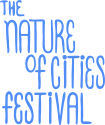
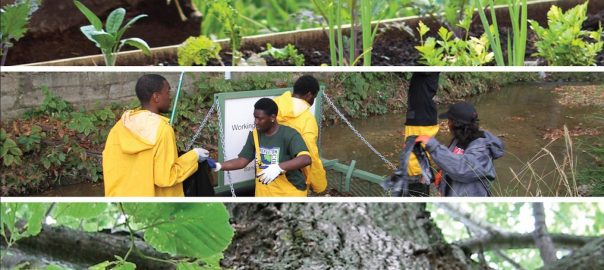
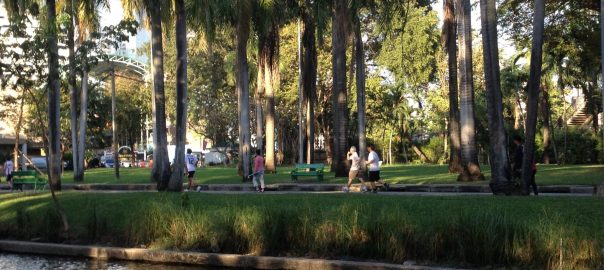

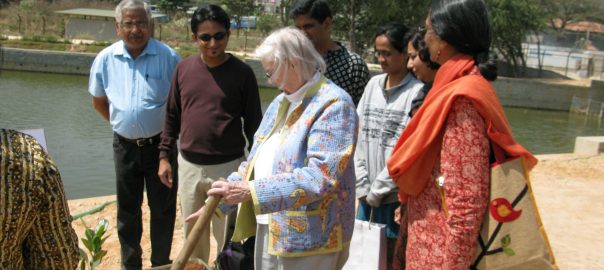

Leave a Reply